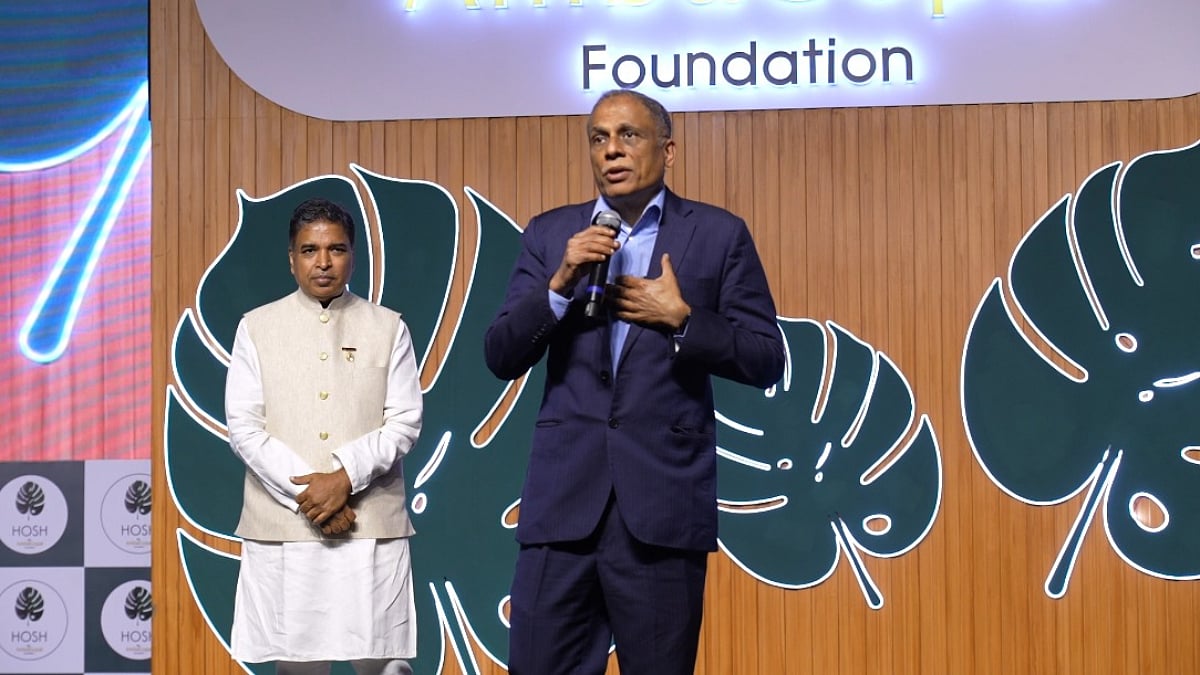Oncologist Dr. Anil D’Cruz | File Photo
Mumbai: One in five men and one in eight women in India are at risk of developing cancer, said oncologist Dr. Anil D’Cruz at a seminar organised under ‘Jagega Bharat Toh Bachega Bharat’ campaign by the Ambagopal Foundation. He attributed this alarming rise to changing lifestyles, environmental degradation, and lack of awareness.
On the eve of World Cancer Day, oncologist Dr. D’Cruz issued a stark warning about the growing incidence of cancer in India, stressing that prevention and early detection remain the most powerful weapons against this deadly disease.
He highlighted that one in five men and one in eight women in India are at risk of developing cancer, attributing this alarming rise to changing lifestyles, environmental degradation, and lack of awareness.
He also emphasised that it is largely preventable if individuals adopt healthier lifestyles, avoid tobacco and alcohol, maintain a balanced diet, and undergo regular health check-ups.
The seminar was organised as part of the ‘Jagega Bharat Toh Bachega Bharat’ campaign by the Ambagopal Foundation. It witnessed the participation of eminent medical professionals, environmentalists, policymakers, and over 2,000 students.
The campaign was launched under the leadership of philanthropist Dr. Harish Shetty and was inaugurated by Ramdas Athawale, the Union Minister of State for Social Justice.
Addressing the gathering, Athawale stressed the importance of preventive healthcare and pledged government support for large-scale awareness programs, delivering his message in his signature poetic style that resonated with the audience.
Dr. D’Cruz emphasised that tobacco consumption remains the single largest preventable cause of cancer in India, responsible for nearly 40% of cases. He urged immediate policy action to curb tobacco usage and called on individuals to quit smoking and chewing tobacco. He also warned that alcohol is another major carcinogen, dispelling myths that moderate consumption is safe.
Dr. Subhash Palekar, an advocate of zero-budget natural farming and a Padma Shri awardee, took the discussion further by linking cancer to dietary habits. He criticised the growing dependence on processed and chemically treated foods, arguing that Western dietary influences have led to an increase in acidic food consumption, which in turn fuels cancer and other chronic illnesses. He advocated for a return to traditional Indian diets rich in millets, pulses, and fresh vegetables.
Peter Singh and Nino Kaur, an elderly couple from Delhi, shared their extraordinary journey of overcoming leukemia through a nature-centric lifestyle. After Nino was diagnosed with leukemia, the couple transformed their home into a self-sustaining mini-forest with over 12,000 plants, purifying their surroundings and embracing organic living.
Water conservationist and Ramon Magsaysay Award winner Dr. Rajendra Singh shifted the focus to India’s deteriorating environmental conditions, drawing a direct link between pollution and rising cancer cases. He lamented the fact that India’s rivers, once pure and life-sustaining, have now turned into drains.
Dr. Harish Shetty, spearheading the ‘Jagega Bharat Toh Bachega Bharat’ campaign, called for a mass movement towards cancer prevention. He proposed renaming February 4 as ‘World Cancer-Free Day’ to shift the narrative from treatment to proactive prevention. He stressed that clean air, clean water, and clean soil are not privileges but fundamental rights and advocated for a national transition towards fertilizer-free agriculture.
